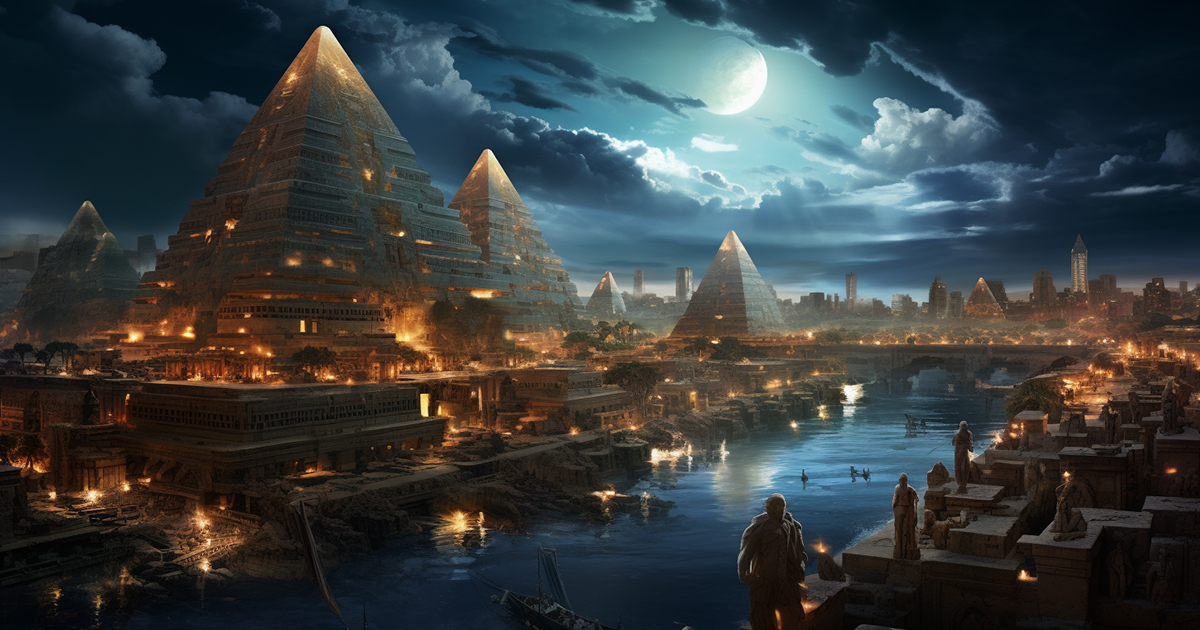Revelations of Origins
The allure of ancient times has always intrigued the human mind. From the majestic Great Pyramids to the enigmatic Nazca Lines, historical enigmas have captured the interest of scholars and historians throughout history. By pondering the remnants of the past and biblical hints at a forgotten ancient society that may have flourished long before recorded history, a fascinating enigma emerges.
Tracing Forgotten Eras
The idea of unveiling ancient civilizations spanning thousands of years fascinates scholars. However, the prevailing view tends towards skepticism. The gradual wear and tear, along with the disappearance of any traces of these ancient cultures over time, have rendered their existence nearly imperceptible. Renowned scientist Michael Dennin stresses the fleeting nature of our modern technological era within the vast scope of geological time. If our civilization were to vanish suddenly today, it would likely leave scarce traces for future generations. This realization challenges our perceptions of the lasting legacy of human accomplishments.

Legends from Antiquity
Conventional archaeology typically places the emergence of the earliest known civilizations around 3000 BC in present-day Iraq. Yet, oral traditions, ancient myths, and historical records from various cultures tell a different story, one that predates these established civilizations. These accounts speak of a time when humans supposedly coexisted with divine beings, often revered as gods.
These tales often depict an era “beyond the beginning,” a period when gods and humans walked the Earth together. In Greek mythology, Hesiod introduced the concept of five ages of man, with the Golden Age symbolizing a harmonious partnership with divine entities. Hesiod regarded this era as historical reality rather than mere myth. Similar cyclical age concepts are present in other cultures, such as the Aztecs.
Insights from Sacred Texts on Ancient Civilizations
Fascinatingly, biblical scriptures also allude to civilizations existing before Adam. In the Book of Genesis, Chapter 36, an unconventional genealogy mentions kings reigning in the land of Edom prior to the establishment of an Israelite monarchy, hinting at advanced societies predating Adam.
Furthermore, Enochian literature shares accounts of highly advanced civilizations reportedly possessing sophisticated technologies, including what we now recognize as nuclear capabilities. The convergence of evidence from diverse traditions and cultures suggests the plausibility of advanced civilizations from earlier epochs fading into historical oblivion.
The Enigma of yore
The lingering question revolves around the possibility of multiple advanced civilizations flourishing and fading on Earth, each eventually succumbing to the passage of time. Giorgio Tsoukalos challenges the traditional perspective of gods as figments of human imagination, proposing that these divine figures were extraterrestrial beings imparting knowledge to humanity.
While navigating the intricate web of ancient myths, biblical references, and intriguing clues from different traditions, the concept of a forgotten prehistoric civilization gains credibility. The enduring narratives of gods, advanced wisdom, and pre-Adamic societies transcend ages and cultures, prompting us to unravel the mysteries shrouded in our distant past.
Visual Insight:
Concluding Reflections
The whispers of evidence and biblical hints pointing towards a vanished prehistoric civilization continue to ignite curiosity and fascination among researchers and history enthusiasts. Although tangible proof may evade us, the enduring legends of gods, advanced technology, and pre-Adamic societies in various cultures and sacred texts urge us to explore the plausibility of multiple advanced civilizations gracing our planet, their legacies gradually fading from historical records. As we contemplate these mysteries, the quest to unravel the enigmas of our ancient past retains its compelling charm.
